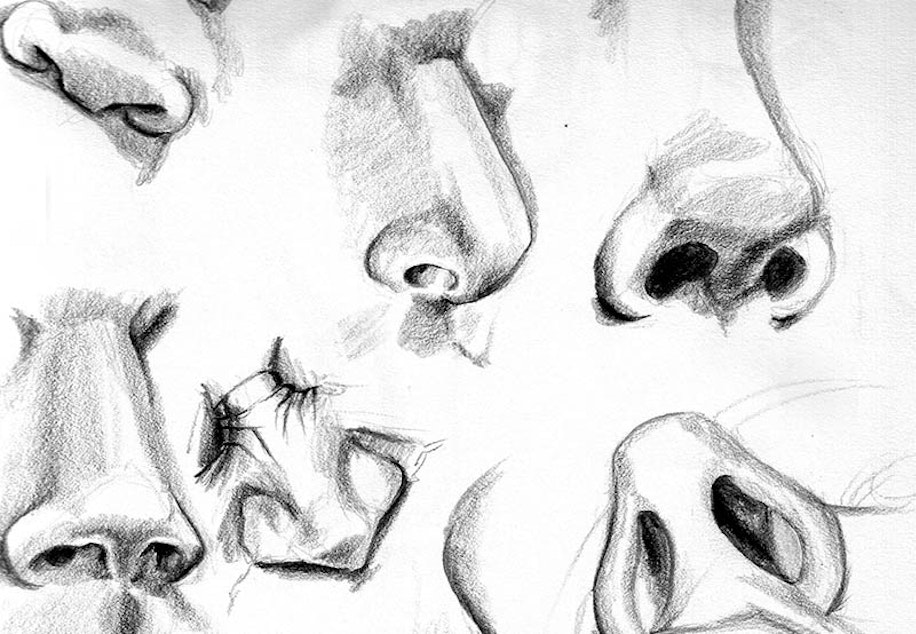When wearing fragrance at work, use common scents

Several weeks ago at KUOW, one of our colleagues placed anonymous notes in our work mailboxes. We used to have a scent-free policy, this person wrote. What would it take to bring that back?
This triggered a staff-wide discussion about smells at work. Is perfume innocent self-expression? Several of us made that argument. Or is wearing a scent an imposition on helpless colleagues?
Read: What the Seattle City Council learned just two weeks before the head tax vote
KUOW’s Bill Radke spoke with Jesse Hardy, a Nordstrom fragrance specialist, and Ellen Covey, a psychology professor at the University of Washington who specializes in scents.
Hardy said scent-free work environments are increasingly common, with detailed, pages-long policies. This isn’t just for medical offices, he said.
Sponsored
“You can’t wear scented shampoos, conditioners, or sometimes makeup that is scented,” Hardy said.
Read: 'We live in a jewel of a place that comes with wild risks'
Covey said that some people overdo it on the perfume – a little dab’ll do ya, she said.
“The best way to do it is put a tiny dab where your clothes cover it so you can enjoy it yourself,” she said.
How to wear perfume is all in the application—Harvey and Covey recommend dabbing, not spraying. And put it on a part of your body that will be covered by clothes. Apparently women used to dip cotton balls in perfume and tuck it in their bras.
Sponsored
Read: I drove like a jerk in Seattle traffic to see if it would save me time
Many of our Facebook commenters said that they have a severe allergy to smells. Hardy and Covey dismissed the notion of someone being allergic to all scents.
“You can have an allergy to a certain molecule,” Hardy said. “To be allergic to all scents is not a thing.”
Listening to the interview, Melissa from Bellevue called in with this comment: “Wearing perfume in the workplace is just not considered professional.” Consider that the person sitting next to you might have asthma, she said.
In the KUOW greenroom – that’s where our guests wait before going on air – we asked Harvey and Covey, as expert noses, what they notice out in the world.
Sponsored
Lots of ambroxan, they said – an ingredient found in lots of popular perfume. Hardy said he associates it with mall clothing stores.
And what to wear for appeal? Covey scoffed. Perfume is not a sexual attractant, she said. “We are not moths.” The idea that perfume makes you attractive is a story imparted to us by advertising.
Hardy said that one study showed that nothing was a bigger turnoff to women than cologne – he said it tested even worse than feces.
Also disgusting to super sniffers: English Ivy blossoms. When we asked what those smell like, Covey and Hardy replied in unison: semen.

